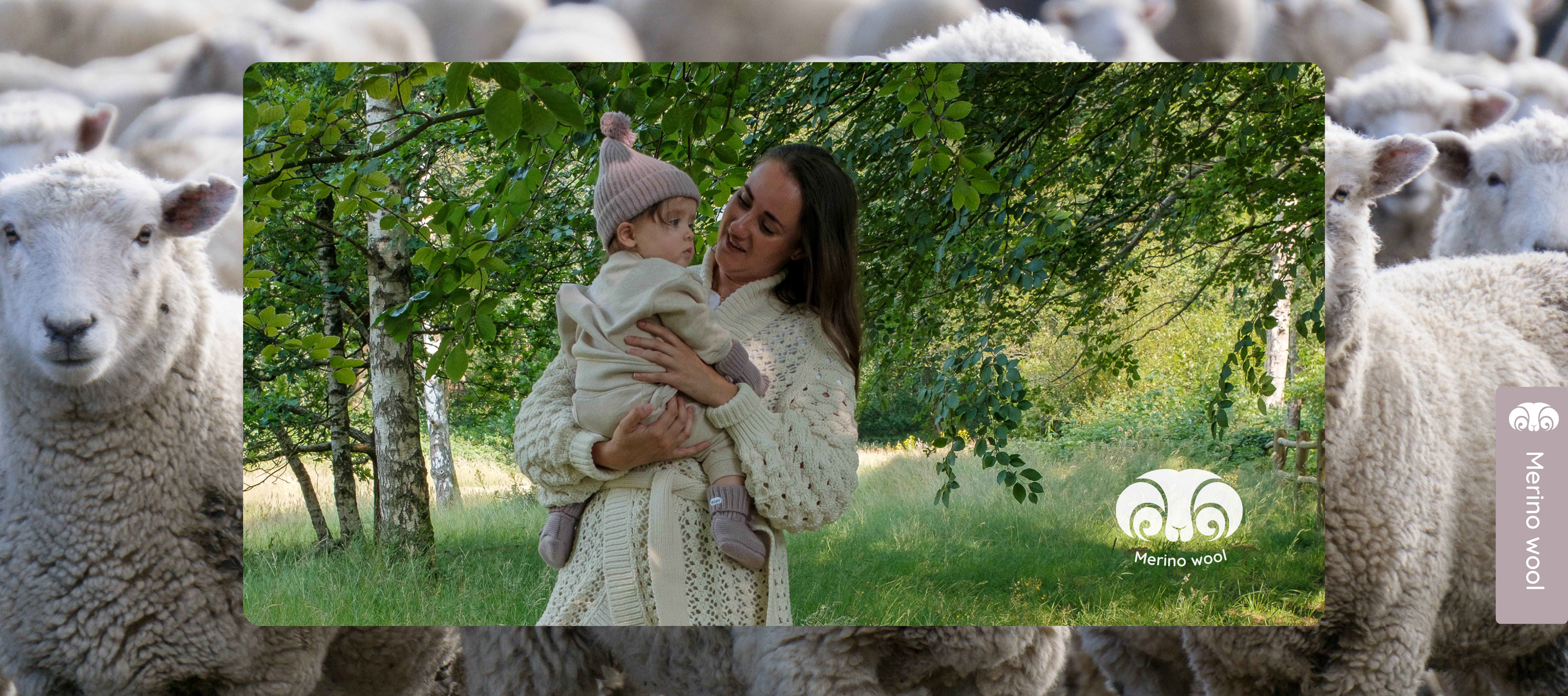- Change your country
- English (Netherlands)
- Austria
- België
- Belgique
- Bulgeria
- Czech Republic
- Denmark
- Deutschland
- Estonia
- Finland
- France
- Ireland
- Italy
- Latvia
- Lithuania
- Luxembourg
- Nederland
- Poland
- Slovakia
- Spain
- Sweden
- Schweiz

Always the best for your baby. At Lodger we think quality is very important. That is why we create our products with lots of care and love. In our new collection we will launch soft and 100% natural products made of merino wool.
Merino wool is a natural fiber that comes from a Merino Sheep. These fibers are much thinner and softer than a normal wool fiber. This makes it comfortable to wear on skin. Wearing wool provides a lot more advantages, read more.


Comfort
You probably know by now that we think comfort is important, but what exactly is comfort? Due to the thin fiber of merino wool, the fabric feels very soft and does not itch that much. The fiber is even thinner than a human hair. It works like this, when the fabric touches the skin it will not touch because it bends. This is why merino wool does not itch like other wool fibers, because it is too lightweight. Therefore it is soft, very soft…. This wool quality is very suitable for a sensitive baby’s skin.

Merino wool is usable all year long due to the breathable and absorbent features. It helps to keep regulate your body’s heat. That is why, for example, merino wool slippers are cool in the summer and warm in the winter. This might sounds crazy, but this wool fabric got a very unique structure which is very absorbent. The material absorbs a lot of moisture and still feels dry, perfect for summer when your baby is sweaty. In the winter, for example, merino wool regulate the temperature and retains the heat, which keeps your baby warm.




Did you know that merino wool is self-cleaning and therefore does not need to be washed often. Also, to keep the best quality we do not recommend to wash the merino wool products that often. In fact, you do not feel the need to wash it because it removes odor. To get the product fresh again, just hang the product in a moist environment which activates the self-cleaning feature. Merino wool will last for years and therefore it is definitely a sustainable choice to create a better and greener world.
Merino wool is biodegradable and disappears in the soil after about 12 months. That means, when you are done with your produce, the soil takes back this fibrous protein, which is made up of amino acids, and releases carbon and nutrients back into the soil.
